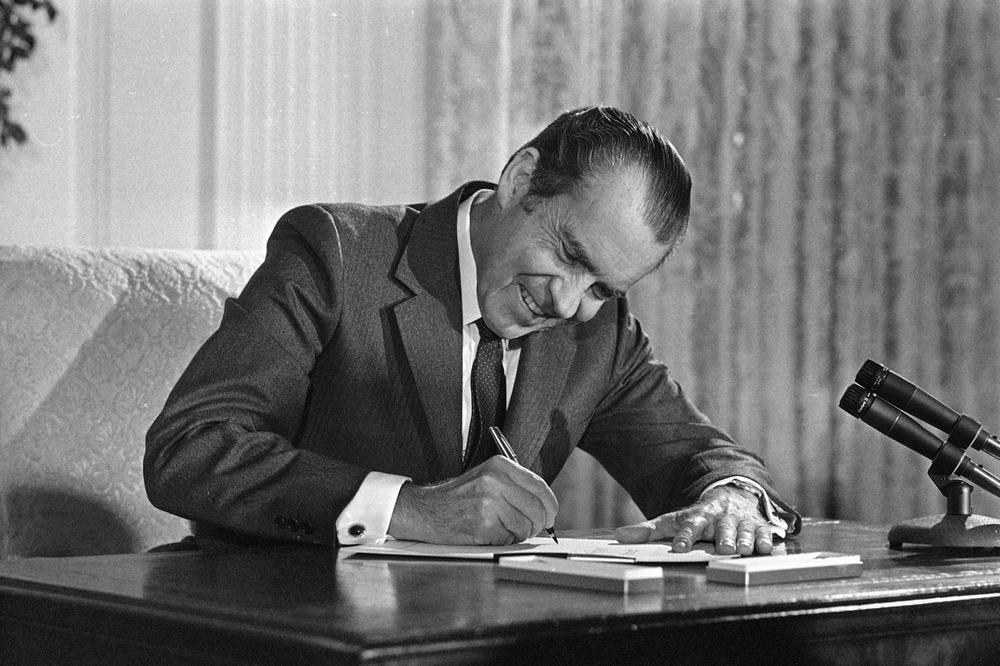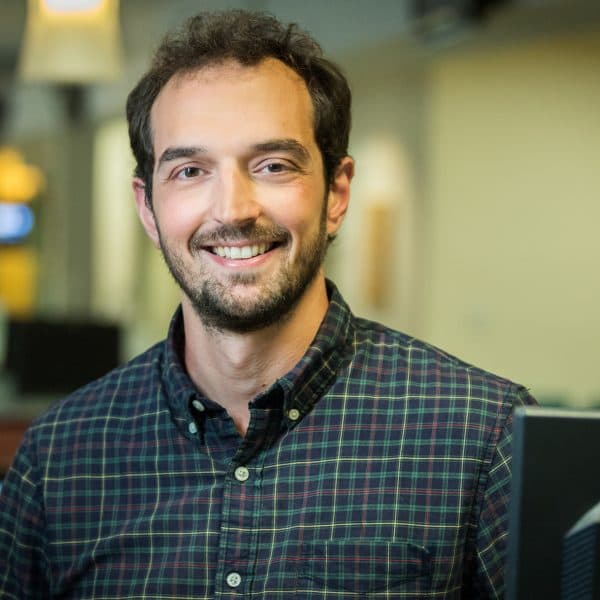Advertisement
The War On Cancer: A Progress Report
Nearly 40 years after President Richard Nixon declared a war on cancer, victory remains elusive.
"We’ve made progress and we’ve reduced the death rate," said Dr. Jerome Groopman, of Harvard Medical School and Beth Israel Deaconess Medical Center, in an interview with Here & Now host Robin Young. "A lot of it has to do with changes in lifestyle and medication ... but we still have a far way to go before we can declare victory."

Groopman spoke soberly about researchers' understanding of cancer and the tenacity of the foe.
"We know that those breaks or mutations in the genes in cancer cells can be caused by the environment, toxins in those environments, radiation exposure," he said. "But we really don't know in most people why one person develops cancer and another doesn't."
"Cancer cells are just terribly diabolical in terms of how clever they are," Groopman went on. "Not only do they have mutations when you begin to treat them, but they develop new mutations as you’re treating them. So it's almost like that Greek god, Proteus, you’d grab hold to one arm and he would sprout out a new one."
In the years following Nixon's proclamation, Groopman said, cancer research suffered from a phenomenon he calls "iron lung syndrome."
"Well, we’ve made progress and we’ve reduced the death rate... but we still have a far way to go before we can declare victory."
--Dr. Jerome Groopman, Harvard Medical School and Beth Israel Deaconess Medical Center
"Instead of looking for an innovative vaccine for polio, it was as if you were investing in just more iron lungs," he explained. "You were taking care of symptoms rather than getting at the root cause or protecting the person."
"I think the initial Nixon war on cancer was really fraught with huge sums of money misspent and really wasted in both looking for viruses as the cause — which turned out not to be the real cause — and also 'me too' studies — really very mundane studies of different chemotherapy drugs which didn’t advance things in the least," he said. "For sure, we need more basic science research right now."
Groopman concluded by dispensing a bit of old-fashioned doctor's advice.
"In terms of a lifestyle, I would say, first of all, absolutely stop smoking," he said. "I also think that women who are beyond menopause should be very careful in terms of taking estrogen or how long they take estrogen. I think that a really good physical exam [is key], and I still believe that colonoscopy, mammogram, pap smear can really save lives."
Listen to Young's full interview with Dr. Groopman, Jan. 7, on "Here & Now".
Related Link:
This program aired on January 8, 2010. The audio for this program is not available.
